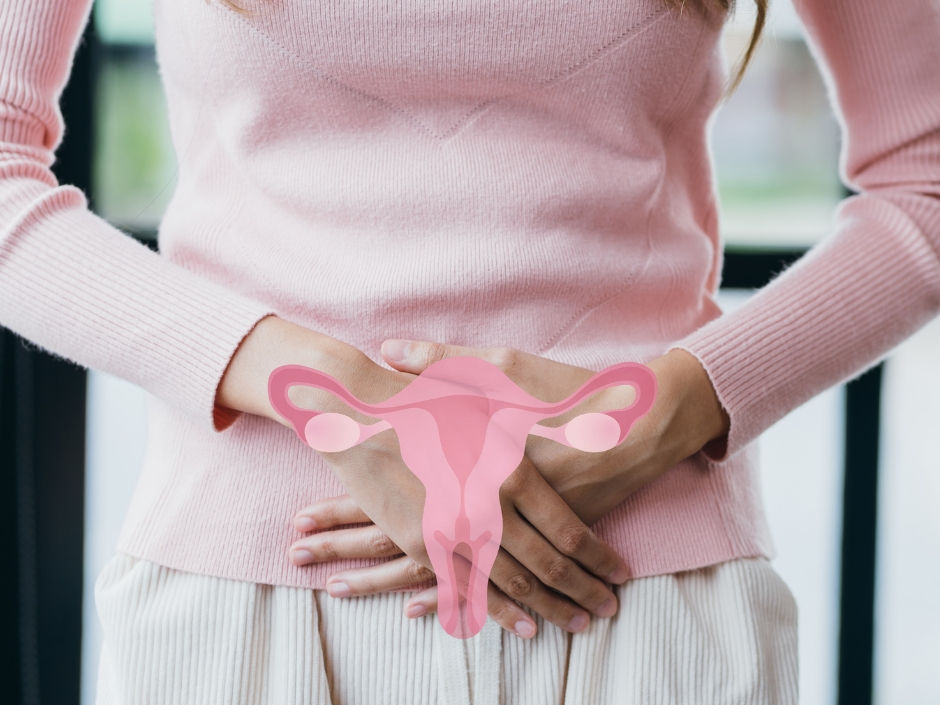How Do I Know If I’m in Perimenopause? What Is Perimenopause Anyway?
- Victoria Harris
- Apr 8
- 4 min read
Updated: May 18

Let’s clear something up: Perimenopause is not Menopause.
It’s the transition into menopause—and it can feel like your body is doing things you don’t recognise.
Perimenopause can begin as early as your mid-30s and last for many years before your period actually stops. It’s during this time that hormone levels start to fluctuate wildly, often triggering a wide range of symptoms—sometimes up to 60 different ones.
Think of it like this: Perimenopause is the hormonal rollercoaster. Menopause is the stop at the station.
Menopause vs. Perimenopause: What’s the Difference?
Menopause is officially diagnosed when you’ve gone 12 consecutive months without a period—no spotting, no bleeding, nothing. The average age this happens is around 45–51.
Perimenopause is the phase before that final period. Your estrogen, progesterone, and other key hormones start rising and falling irregularly, sometimes daily. It’s unpredictable, and that’s what makes the symptoms so intense for many women.
Symptoms of perimenopause can include:
Irregular or heavy periods
Hot flashes and night sweats
Brain fog and memory issues
Mood swings or increased anxiety
Weight gain around the midsection
Low libido or vaginal dryness
Fatigue, joint pain, and more
If any of this sounds familiar, you’re likely not just “aging"—you are probably in perimenopause.
So What’s Actually Happening in the Body?
Here’s a quick breakdown of the biology behind the chaos:
Your estrogen begins to fluctuate and eventually declines. Estrogen affects everything from your bones and brain to your metabolism and mood.
Your brain tries to compensate by increasing FSH (follicle-stimulating hormone) to stimulate egg production—but with fewer eggs available, this feedback loop gets scrambled.
As a result, you experience daily hormonal fluctuations—which is why blood tests can be misleading. One day your estrogen is high, the next it’s low.
Estrogen has receptors all over your body. So when it dips, it can impact:
Skin (dryness, itching, aging)
Hair (thinning, dryness)
Joints and bones (pain, inflammation)
Gut health (bloating, constipation)
Brain (memory, sleep, mental health)
Pelvic floor (bladder issues, low libido, UTIs)

Why You’re Not Getting the Right Answers!
Despite how common menopause-related symptoms are, many women are told things like:
“You’re too young.”
“It’s probably just stress.”
“Your bloodwork looks normal.”
Sound familiar?
Here’s the truth:
Most GPs and healthcare providers simply don’t have the tools—or the training—to recognize perimenopause. The system is under-resourced, and menopause education in medical school is minimal at best. Many doctors receive minimal training on menopause across their entire career.
To make things worse, traditional hormone testing isn’t reliable during this transition.
Why?
Because hormones like estrogen, FSH, and progesterone fluctuate daily—even hourly—in perimenopause. A single blood test offers just a snapshot, not the full story. This often leads to “normal” results, even when your symptoms are anything but.
That’s why I use a symptom-based scoring system, adapted from the Australasian Menopause Society guidelines and is regarded as the gold standard in perimenopause diagnosing. It gives us a more accurate, personalized look at where you are in your hormonal journey.
If you’ve been dismissed or told everything looks fine—you’re not imagining it.
You just need a better lens.
👉 Start with the free symptom quiz to get clarity on whether you’re in the perimenopausal phase—and what to do next.
Take the Perimenopause Symptom Quiz
If this is all sounding a little too familiar, you deserve answers—and a place to start.
That’s why I created the Perimenopause Symptom Quiz—a quick, confidential way to evaluate your symptoms and get immediate clarity.
✔ Based on science, not guesswork
✔ Covers physical, mental, emotional, and hormonal symptoms
✔ Takes less than 5 minutes
Why Early Action Matters
Perimenopause is more than a phase—it’s a biological turning point. And what you do now can impact your health for decades.
Ignoring symptoms doesn’t make them go away. In fact, untreated perimenopause can lead to:
Long-term joint pain and bone loss
Fat accumulation and insulin resistance
Mood disorders and cognitive decline
Sleep issues, burnout, and chronic inflammation
But with the right support, women in their 40s, 50s, and even 60s can regain energy, clarity, and confidence—often in just 8–10 weeks.
Get the Answers You’ve Been Looking For
You deserve to feel good again—and I can help.
Let’s keep it simple:
✅ Step 1: Take the Symptom Quiz
Get clarity on whether you’re in perimenopause—and what your body is asking for.
✅ Step 2: Grab Your Free Menopause Manual
Understand your symptoms. Learn your options. Feel empowered.
✅ Step 3: Book a Free Consultation
We’ll walk through your results and build a clear, personalized path forward.
Final Thought
Menopause is not just about periods stopping. It’s a full-body transformation—and it deserves more than “wait and see.”
Women are not meant to just suffer through menopause—they deserve the knowledge, tools, and support to THRIVE!
Take the quiz today. Clarity is just a click away.



